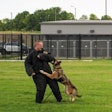The ultimate goal of a gang investigation is to find the truth. What happened? Who did it? How? As law enforcement officers, how do we arrive at the truth? What is our part in the game plan? Here are some suggestions that may be useful for patrol personnel, detectives and follow-up investigators when dealing with witnesses and victims of gang crimes.
The success story begins with the responding officers. They are the initial investigators and can make or break a gang case with the initial police contact. Gangsters are often immediately caught because of a responding officer's insight, quick response and know-how. They should document the crime scene with a diagram or photograph in accordance with department policy, and all physical evidence should be collected. Some departments have specialized details and use video cameras to document crime scenes and evidence.
The initial report should be as concise and thorough as possible, with witnesses and victims properly documented. This may include recording the names, addresses and telephone numbers of family or friends, especially if the witness or victim is transient. Investigators may also want to photograph the witnesses in gang cases and their statements should always be recorded.
Recording Interviews
Interviews can be conducted by the initial patrol personnel or responding gang/homicide investigators and should be recorded for several reasons. The recordings become an insurance policy for both the prosecutor and the investigators. Once recorded, witnesses or victims can't go to court and tell the jury, "I never said that," "I don't remember saying that" or "The investigator is making that up; He's a liar." The audio or videotape recording commits witnesses and victims to the statements they make to investigators. It is also useful for guiding investigators through written paperwork.
Just as important as the legal issues, a recording is absolute proof of the investigators' professionalism. It documents their demeanor and manner, and it's a record of what happened during the interview. Recordings also protect investigators from accusations of abuse or sexual misconduct.
It is wise for investigators to conclude every interview with the following questions: Have I threatened you in any way? Have I promised anything to you? Are you telling the truth? Why? Is there anything else you would like to add? The answers to these questions can be crucial in cases where the defense is making accusations that their client was threatened, promised leniency or interviewed against his or her will.
Interviewing suspects is not always easy, especially if the person you are about to interview has been thumped by the arresting officers or has just killed your friend, your partner or yet another innocent kid. Our emotions and mental state play an important role in how other people perceive us. The goal in these interviews is to set aside emotions and get to the truth, which is often an admission of wrongdoing. But how do successful investigators regularly obtain admissions?
One tool investigators use to get witnesses or suspects talking is the implied waiver. After the Miranda rights are explained and understood, you may want to consider using the implied waiver technique. Instead of asking if they are willing to talk about the charges against them simply start asking questions about the case. Consult your local prosecutor for advice and possible scenarios where the implied waiver can be used.
There are several types of witnesses investigators encounter. Professional witnesses include police officers, detectives, deputy coroners, forensic experts and gang experts. There are also witnesses to the actual crime. They are, for the most part, civilians who saw or heard some part of the crime. There are crime partners, who can testify against the main suspect, and custodial witnesses, who may be in local or state prison sentenced on another crime but know something specific about the crime or suspect being investigated.
Nonparty witnesses may also be crucial to a gang case. These are civilian witnesses who are the girlfriends, boyfriends, friends and family members of the person being investigated. They can often provide great evidence if approached properly. Offenders frequently talk to loved ones before or after committing a crime. These nonparty witnesses sometimes hear firsthand what happened or were privy to the plan before the crime went down. If solicited correctly, you can often retrieve an admission made by the suspect. This inforII1ation is invaluable, and it can be used at the trial.
Use Informants with Caution
Don't forget about informants. If reliable and tested, these information sources may also be helpful in solving a case. More importantly, they are often useful in capturing any outstanding suspects.
There are a couple of things to be aware of when working with informants. There have been some recent California cases that indicate if an informant receives an injury while working for the police, he or she may be entitled to worker's compensation. Consult your city or county prosecutor about obtaining a waiver. Files should also be maintained containing contracts and waivers for every informant, and they should be stored in a secure location with limited access.
It is also wise to avoid working with informants alone. The reality is that everyone has a price. Your own informant could take advantage of you if given the opportunity. Don't forget, information is power. Secondly, you can ward off accusations of sexual misconduct or inappropriate behavior by having others present when you meet with informants. Since our work is constantly being scrutinized, play it safe and prevent any chance of an allegation.
Break Down Cultural Barriers
Many witnesses do not speak English. Use care when using a translator to avoid any misunderstandings. Any translator works well in an emergency situation. However, when you have the time and plan to conduct a stationhouse interview, bring in a trusted, accurate translator. Consider developing a volunteer corps of civilian translators who could be called to a crime scene or the station to assist investigators.
Don't forget, with different languages come different cultures. An understanding of the cultures represented in your jurisdiction will give you an edge when conducting interviews with the civilian population. Understanding cultural differences can be the key needed to obtain civilian cooperation.
The last group of witnesses are the victims of gang violence. It is important to be empathetic with victims. You don't have to like them to be professional. Victims come from all walks of life. They are poor and rich, illiterate and educated, socially affluent and social outcasts, young and old, sophisticated and simple. Try to put yourself in their shoes. If you go the extra mile, you might be surprised by the cooperation you can obtain.
It's a great feeling to finally discover what happened and who did it. It is even more fulfilling to arrest the person(s) who did it and to see the trial conclude with a conviction. Conducting sound investigations, including thorough, professional witness and victim interviews, is yet another key to getting gang criminals off the street and behind bars. Be safe.
Al Valdez is an investigator with the Orange County (Calif.) District Attorney's Office and author of the book, "Gangs." He is also a consultant to the Orange County Board of Education, the Department of Justice and the Office of Juvenile Justice and Delinquency Prevention.












